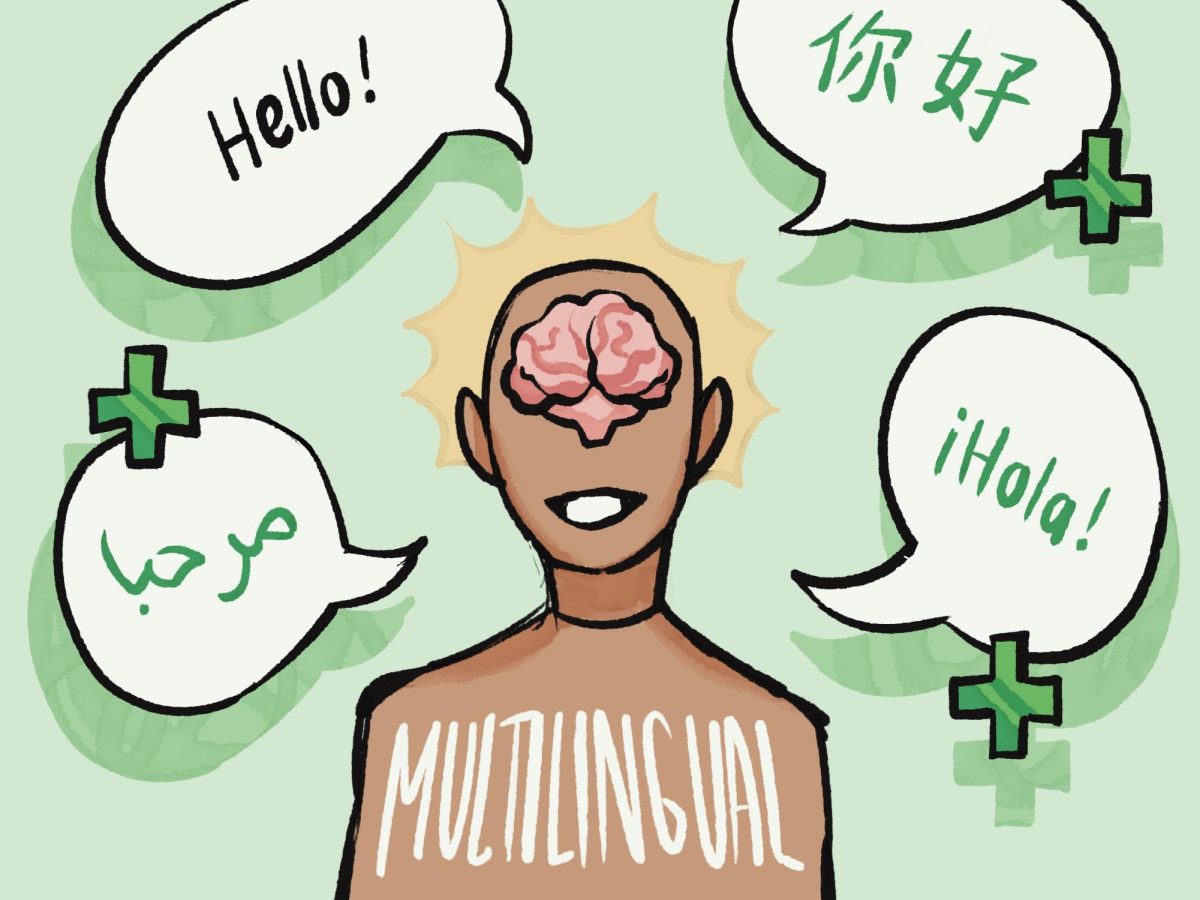Many students at SCHS choose to stop learning a language after they reach the two year language course requirement. Students, however, could reap great benefits if they continue the learning journey throughout high school and into the rest of their lives. Not only is learning multiple languages impressive, but it can help someone become more understanding of other cultures, grant someone more career options and make one’s brain stronger.
Learning a second or third language can help people understand other ethnicities better and improve diversity. They can form connections with people in that culture and understand their individualism. They can discuss with others about food, activities, culture, relationships, hobbies, careers and much more by using their trained practices. One can become more well-rounded simply by joining a class in school, or an online program, to learn another language.
When they travel or talk to people in that language, they learn more about various cultural groups, the etymology of their language, their movies, their food and more of their history. People can truly recognize someone’s culture and get more chances at an amazing relationship because they took the time to reduce the language barrier and strengthen the connection.
Additionally, learning a second or third language can improve someone’s career options. If someone can speak Mandarin and English for example, they would have a better experience traveling to China or Taiwan. They could be able to create a professional relationship there and possibly get hired because they speak Mandarin.
Also, knowing multiple languages allows one to translate, transcribe or speak in a consumer-facing business, which is a sought-after skill. If one person wants a job at a bakery, it would be more beneficial to have the skill of three languages, rather than one. That way, if one’s customers or boss speak another language, they can easily communicate with them. One can solve more problems and have a wiser brain by speaking multiple languages in and out of their career field.
Further, a multilingual brain is proven to be sharper. According to the article “9 Benefits of Learning a Second Language” published by University of the Potomac, learning two or more languages helps to expand the brain, helps the brain’s gray matter grow and decreases cognitive decline. They also state that there are much deeper benefits, such as inhibitory control, longer attention span and more creativity.
People who are multilingual also become better at multitasking, which can help in numerous aspects of one’s life. According to that same article, 16 million people have their brain’s intelligence decline as they age, and it is proven that multilingualism assists in slowing down those difficulties. Learning multiple languages can help in more than just language classes – one’s brain’s muscles are stronger to act in other courses as well.
One may be hindered by the difficulty of learning another language, but it can be taught in a natural way. Many people unsure about learning a new language might be reluctant because they believe they lack the time, or they do not find learning enjoyable. There are many learning programs available, however, such as Duolingo, Babbel, SpanishDict, Rosetta Stone and some podcasts one can delve into individually.
According to the article “The Disadvantages of Being Bilingual” by Nele Van Hout, some people could be held back by accessibility or free time. Many community colleges, however, offer free or cheap classes, so one could take a course inexpensively and still reap the benefits. Taking a MasterClass, a college course, or even traveling abroad would be great options for someone who wants a structured language learning journey.
Some might be hesitant to learn because they think they do not have the time, but duolingo and many other apps require less than 10 minutes to complete a lesson. If people can scroll through TikTok for hours, or read during meals, they have the time for a brief self-paced lesson.
If people are nervous to mix up languages in their brain, daily practice and lessons, or immersion in school or another country can help. Some people may not think that language learning is accessible or affordable. While it may be pricey to travel to Costa Rica to learn Spanish, people can visit close Spanish-speaking areas in their home state, or try free websites right at one’s fingertips. Multilingualism is now more accessible than ever, so anyone is able to acquire the benefits of exploring a new language.


